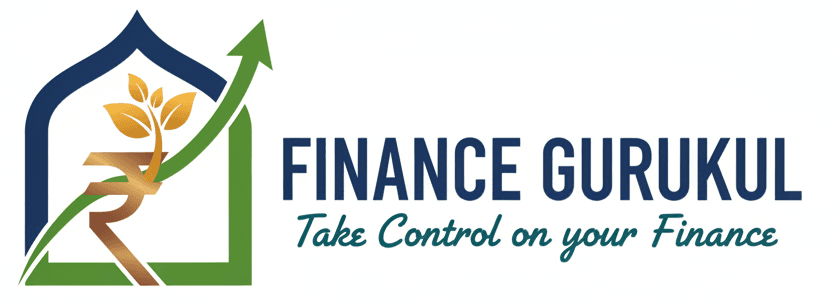
Avoid Shopping on EMI for Unnecessary Things: A Smart Financial Decision
Welcome to Your Website Finance Gurukul. today you will learn in this Blog, how to avoid EMI’s. after searching any product today, we have to see rate but not full rate, on every shopping platform they are showing Monthly EMI amount to attract us for make a purchase easily. In today’s world, with instant gratification and easy access to credit, it’s tempting to fall into the trap of buying things on EMI (Equated Monthly Installments) even if we don’t truly need them. While EMIs can be a convenient way to finance essential purchases, using them for non-essential items can lead to a cycle of debt and hinder your financial goals. At Finance Gurukul, we believe in promoting responsible financial decisions, and this blog post will explore why you should avoid shopping on EMI for unnecessary things.
Also Read: Think Money, Fuel Your Life
The Pitfalls of EMI Purchases:
While the allure of spreading the cost over several months seems appealing, there are hidden costs associated with EMIs that can significantly impact your finances:
- Interest: Unlike debit card purchases where you pay the exact amount, EMIs involve borrowing money from the lender. You end up paying interest on the borrowed amount, which increases the overall cost of the item. This interest can add up significantly, especially over longer EMI terms. Imagine buying a television on a 12-month EMI plan. The interest you pay on the loan could add hundreds or even thousands of rupees to the final price of the television, making it much more expensive than the original sticker price.
- Processing fees: Many lenders charge processing fees for setting up EMIs, which adds an additional layer of cost on top of the interest you’re already paying. These fees can vary depending on the lender and the loan amount, but they can eat into your budget and further increase the overall cost of your purchase.
- Reduced financial flexibility: With ongoing EMI payments, your disposable income decreases, limiting your ability to save for other needs or emergencies. This can create a feeling of being financially stretched thin and make it difficult to weather unexpected financial situations.
- Debt trap: Easy access to credit through EMIs can lead to overspending and accumulating unnecessary debt. This can not only strain your budget but also negatively impact your credit score, making it difficult to access future loans for important things like a house or car.
Alternatives to EMI for Unnecessary Purchases:
Before resorting to EMIs for non-essential items, consider these alternative strategies that can help you make smarter financial decisions:
- Embrace the power of saving: Instead of relying on credit, commit to saving up for the item you desire. This may take longer than simply swiping your card, but it ensures you’re not paying extra interest and processing fees. It also allows for better financial planning, as you’ll have a clear understanding of how much you need to save and for how long.
- Prioritize needs over wants: It’s crucial to differentiate between your needs and wants. Needs are essential items for your well-being, such as groceries, utilities, and housing. Wants, on the other hand, are non-essential items that you can live without, like the latest gadget or designer clothing. By prioritizing your needs and focusing your spending on those essentials, you’ll be less likely to resort to EMIs for unnecessary purchases.
- Explore cheaper alternatives: Before committing to an expensive purchase, consider if there are similar items available at a lower price point. You might be surprised to find equally good options that fit your budget without requiring EMIs. Additionally, exploring pre-owned options for items like furniture or electronics can be a cost-effective way to fulfill your needs without breaking the bank.
- Take advantage of discounts and promotions: Keep an eye out for sales, discounts, or cashback offers on the items you desire. These promotions can help you reduce the upfront cost and make the purchase more affordable without resorting to EMIs. By being a smart shopper and waiting for the right opportunity, you can save money and avoid unnecessary debt.
Also Read: Control the Controllable in Uncertain Times
Developing Smart Financial Habits:
Building responsible spending habits is key to achieving financial stability and security. Here are some tips to get you started:
- Create a budget: The foundation of responsible financial management is a well-defined budget. Track your income and expenses to understand your financial situation and set realistic spending limits. This will help you identify areas where you can cut back and allocate funds towards your savings goals.
- Prioritize saving: Make saving a habit, even if it’s a small amount each month. Consistency is key to building a financial safety net. The money you save can be used for emergencies, future investments, or fulfilling your long-term financial goals.
- Evaluate before you buy: Before making any purchase, especially on impulse, take a step back and ask yourself if you truly need the item. Consider if it aligns with your financial goals and priorities. By taking a mindful approach to your spending, you can avoid unnecessary purchases and make informed financial decisions.
Conclusion:
EMIs can be a helpful tool for managing essential purchases but using them for unnecessary items can create a financial burden in the long run. By adopting responsible spending habits, prioritizing saving, and exploring alternatives, you can make mindful financial decisions and achieve your financial goals without getting caught in the EMI trap. Remember, at Finance Gurukul, we are here to empower you with financial knowledge and guide you on your path to financial well-being.



